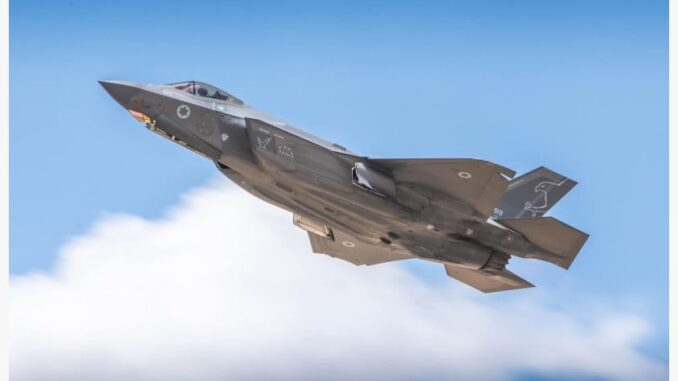The Netherlands houses one of several regional warehouses of US-owned F-35 parts, from which the parts are distributed to countries that request them.
By REUTERS, JPOST FEBRUARY 12, 2024

A Dutch appeals court on Monday ordered the government to block all exports of F-35 fighter jet parts to Israel over concerns they were being used in violations of international law during Israel’s Gaza offensive.
“It is undeniable that there is a clear risk the exported F-35 parts are used in serious violations of international humanitarian law,” the court said.
It said the state had to comply with the order within seven days and dismissed a request by government lawyers to suspend the order during an appeal to the Supreme Court.
The case against the Dutch government was brought by several human rights groups, including the Dutch affiliate of Oxfam, last December.
Israel denies committing war crimes in its attacks on Gaza, which followed the Hamas cross-border raid on southern Israel on Oct. 7 in which 1,200 Israelis were killed and around 240 were taken hostage.
 Navy F-35 fighter plane (credit: WALLPAPER FLARE)Enlrage image
Navy F-35 fighter plane (credit: WALLPAPER FLARE)Enlrage image
In a first ruling, a lower court had stopped short of ordering the Dutch government to halt the exports, even though it said it was likely that F-35s contributed to violations of the laws of war.
It said the state had a large degree of freedom when it comes to weighing political and policy issues in deciding on arms exports.
The original decision was dismissed by the appeals court
That was dismissed by the appeals court, which said political and economic concerns did not trump the clear risk of violations of the laws of war.
The appeals court also said it was likely that the F-35s were being used in attacks on Gaza, leading to unacceptable civilian casualties. It dismissed the Dutch state’s argument that it did not have to do a new check on the permit for the exports.
The Netherlands houses one of several regional warehouses of US-owned F-35 parts, from which the parts are distributed to countries that request them, including Israel in at least one shipment since the Oct. 7 attacks.



https://www.shephardmedia.com/news/air-warfare/israel-prepares-f-35s-for-potential-mission-in-iran/
The axis of evil of China, Russia, Iran and NK are very pleased at how the west has failed to ban together against common enemies while they are united against us. Whether Europe realizes it or not, hamas is not just Israel’s problem. It’s part of the global jihad. If hamas prevails so does the islamic war against the west. The west should be fully and stalwartly behind Israel in supporting the Israeli fight to exterminate hamas. We should be arming Israel to the teeth.
Why do courts get a say in how a country conducts its foreign policy? This is ludicrous.
So stupidity and ignorance has spread to Dutch courts. I wonder what they think of Dutch behaviour when they colonized South Africa…
I wish the Dutch that they never need to absorb the echo.